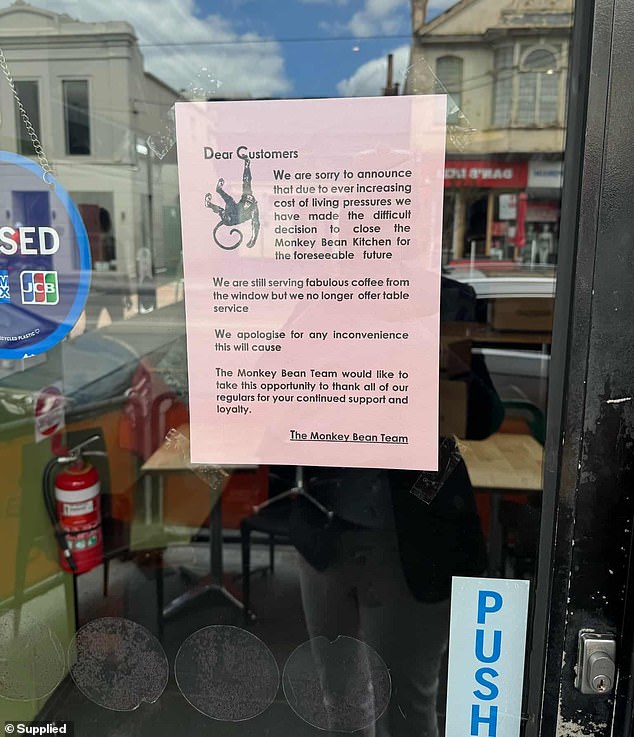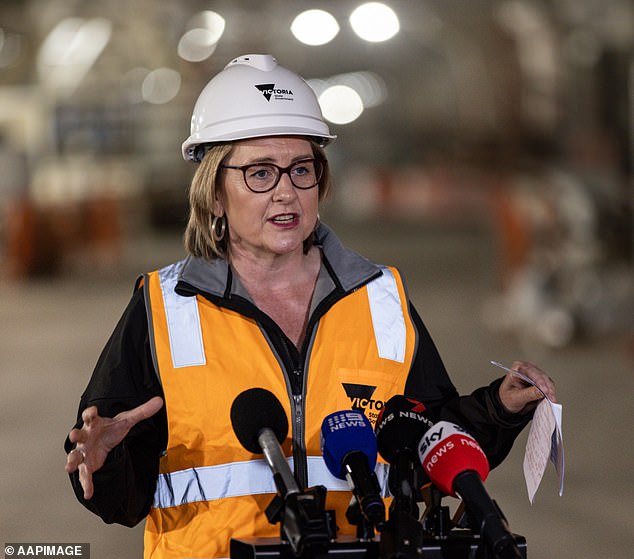The Future of Work in Victoria: Concerns Mount as Work-From-Home Debate Intensifies
Victoria's proposed work-from-home (WFH) legislation is sparking heated debate, raising concerns about its potential impact on businesses and the economy. The proposed law, championed by Premier Jacinta Allan, aims to grant employees the right to work from home for two days a week if their roles allow it. However, critics argue that this legislation is unnecessary, potentially harmful, and could lead to unintended consequences.
The Impact on Businesses
One visible sign of the anxieties surrounding the WFH proposal is the decision by Monkey Bean, a popular cafe in Toorak Village, Melbourne, to reduce its services to takeaway only. A notice posted on the cafe's door explained the difficult decision, citing "ever-increasing cost of living pressures" and announcing the closure of the kitchen. While still serving coffee through its window, the move highlights the struggles faced by businesses reliant on foot traffic, particularly in areas where office workers are a significant customer base.

Liberal MP Georgie Crozier expressed her surprise upon seeing the notice, stating that it felt like a sign of the times, given the cafe's usual bustling atmosphere.
The Victorian Chamber of Commerce and Industry (VCCI) has been a vocal opponent of the proposed legislation. CEO Sally Curtain argues that businesses are already offering flexible hybrid working arrangements and that imposing a legal mandate is unnecessary.
"We don’t need new laws to tell businesses to do what they’re already doing," Ms. Curtain stated, emphasizing that flexibility is evolving naturally because it benefits both employers and employees. She views the proposed legislation as a wasteful intervention in a system that is already functioning effectively.

Economic Concerns and Potential Resentment
Beyond the immediate impact on businesses like Monkey Bean, the VCCI also raises broader economic concerns. Ms. Curtain highlighted survey data indicating that a significant percentage of businesses find it more challenging to operate in Victoria compared to other states. Furthermore, a substantial number of businesses have indicated they would consider expanding outside of Victoria if the WFH laws are enacted.
The potential for resentment among workers who cannot perform their jobs remotely is another key concern. Sectors such as hospitality, retail, logistics, healthcare, and manufacturing require on-site presence, making WFH an impossibility for many employees. The VCCI warns that the "two-day" rule could create inequity and resentment between those who can work remotely and those who cannot.

Calls for Reduced Red Tape and Greater Certainty
The VCCI emphasizes that businesses need less red tape, lower costs, and more certainty to thrive. They argue that the government should enable business creativity and adaptation rather than restrict it through rigid regulations.
Victorian Liberal Leader Brad Battin echoed these sentiments, emphasizing the need to ensure that the WFH proposal does not lead to job losses. He acknowledged the benefits of work-life balance and flexibility, particularly in light of the COVID-19 pandemic, but stressed the importance of understanding the potential long-term consequences of the legislation.
"We support the flexibility, we support the the balance but we want to make sure it doesn't cost jobs in this state," Mr. Battin said.

Government's Perspective and Consultation Process
The Victorian government maintains that the WFH legislation will benefit families, reduce congestion, and be "good for business." They claim that those who work from home often work longer hours and that the laws are intended to protect workers who have been unfairly denied reasonable requests to work remotely.
In August, the government stated that the proposal would save families money, cut congestion and be 'good for business'.
"Those who work from home are working nearly 20 per cent more hours than those who are working in the office full time," a media release stated.
"Work from home has changed millions of lives. While not everyone can work from home, everyone can still benefit."
The government is currently undertaking a consultation process before drafting the legislation and presenting it to parliament. However, they have made it clear that the consultation will not determine whether working from home should be a right.
"Work from home works for families and it’s good for the economy," Premier Allan said in August.
"Not everyone can work from home, but everyone can benefit. If you can do your job from home, we’ll make it your right, because we’re on your side."
The Closure of Ginger Boy
The broader economic pressures facing businesses in Melbourne are further illustrated by the closure of high-profile establishments like Ginger Boy, owned by renowned chef Teage Ezard. The restaurant closed its doors last year after nearly two decades in operation. While Mr. Ezard's subsequent diagnosis with Multiple System Atrophy adds a personal dimension to the story, the closure underscores the challenges facing the hospitality sector.

Additionally, tradespeople running their own companies have reportedly been forced to reduce staff and operate as sole traders as individuals prioritize saving money.
Looking Ahead
The debate surrounding Victoria's proposed WFH legislation is likely to continue as the government moves forward with its consultation process and prepares to draft the law. The key questions remain: Will the legislation achieve its intended goals of improving work-life balance and boosting the economy? Or will it create unintended consequences, such as job losses, business closures, and increased resentment among workers? The answers to these questions will have a significant impact on the future of work in Victoria.


No comments:
Post a Comment